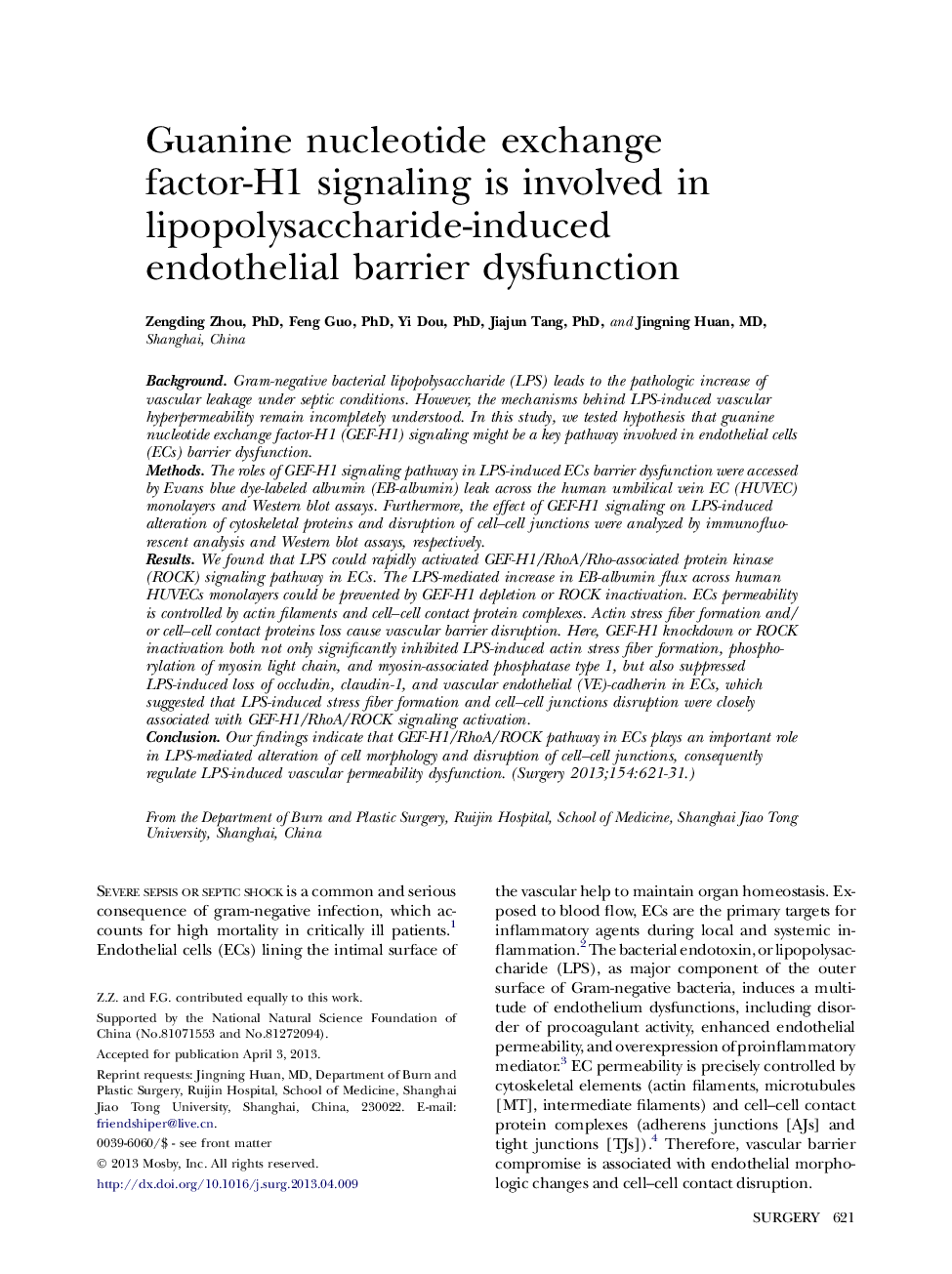| Article ID | Journal | Published Year | Pages | File Type |
|---|---|---|---|---|
| 6255253 | Surgery | 2013 | 11 Pages |
BackgroundGram-negative bacterial lipopolysaccharide (LPS) leads to the pathologic increase of vascular leakage under septic conditions. However, the mechanisms behind LPS-induced vascular hyperpermeability remain incompletely understood. In this study, we tested hypothesis that guanine nucleotide exchange factor-H1 (GEF-H1) signaling might be a key pathway involved in endothelial cells (ECs) barrier dysfunction.MethodsThe roles of GEF-H1 signaling pathway in LPS-induced ECs barrier dysfunction were accessed by Evans blue dye-labeled albumin (EB-albumin) leak across the human umbilical vein EC (HUVEC) monolayers and Western blot assays. Furthermore, the effect of GEF-H1 signaling on LPS-induced alteration of cytoskeletal proteins and disruption of cell-cell junctions were analyzed by immunofluorescent analysis and Western blot assays, respectively.ResultsWe found that LPS could rapidly activated GEF-H1/RhoA/Rho-associated protein kinase (ROCK) signaling pathway in ECs. The LPS-mediated increase in EB-albumin flux across human HUVECs monolayers could be prevented by GEF-H1 depletion or ROCK inactivation. ECs permeability is controlled by actin filaments and cell-cell contact protein complexes. Actin stress fiber formation and/or cell-cell contact proteins loss cause vascular barrier disruption. Here, GEF-H1 knockdown or ROCK inactivation both not only significantly inhibited LPS-induced actin stress fiber formation, phosphorylation of myosin light chain, and myosin-associated phosphatase type 1, but also suppressed LPS-induced loss of occludin, claudin-1, and vascular endothelial (VE)-cadherin in ECs, which suggested that LPS-induced stress fiber formation and cell-cell junctions disruption were closely associated with GEF-H1/RhoA/ROCK signaling activation.ConclusionOur findings indicate that GEF-H1/RhoA/ROCK pathway in ECs plays an important role in LPS-mediated alteration of cell morphology and disruption of cell-cell junctions, consequently regulate LPS-induced vascular permeability dysfunction.
